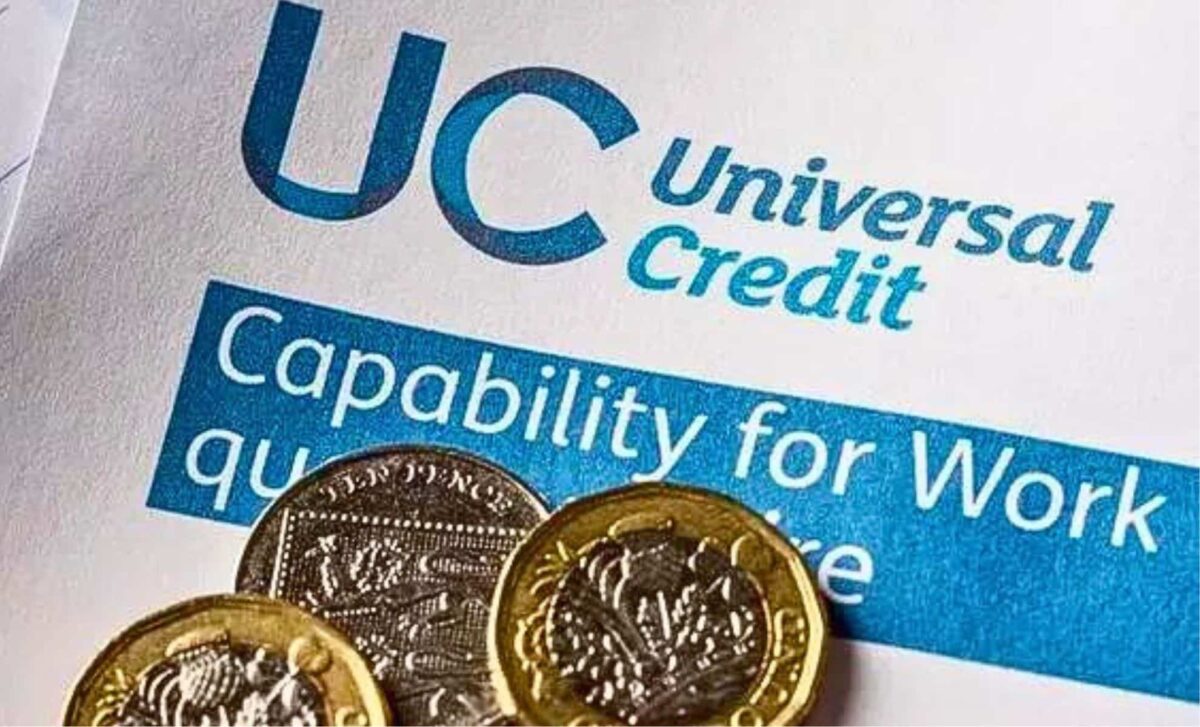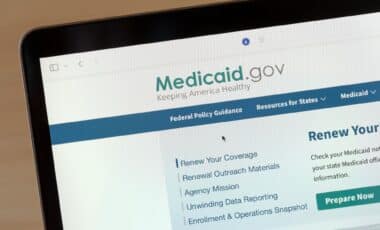The most recent statistics provided by the Department for Work and Pensions (DWP) reveal that a staggering number of individuals, exceeding 6.7 million, are currently benefiting from financial assistance through Universal Credit in Scotland, England, and Wales.
Universal Credit, a means-tested welfare program, aims to provide support to individuals who are either unemployed or earning a modest income by assisting them with their day-to-day expenses.
It is important to note that a significant number of individuals who receive Universal Credit or income-related Jobseeker’s Allowance (JSA) due to disabilities, long-term illnesses, or physical and mental health conditions may not be fully aware of the potential financial support available through Personal Independence Payment (PIP) or Adult Disability Payment (ADP).
These additional funds can greatly assist in covering the costs associated with daily living and mobility. Furthermore, it is worth mentioning that ADP has now replaced PIP for all new claims made in Scotland.
PIP and ADP are non-taxable and non-means-tested benefits, making them exempt from the benefit cap. For a person aged 25 or over making a new claim for JSA or Universal Credit, and simultaneously making an initial claim for one of these schemes, the maximum monthly amount that can be received is £737.20, regardless of any other benefits received.
If this is added to the standard Universal Credit monthly payment of £393.45 for those over 25, the cumulative funds can potentially amount to around £1,130.65. It should be noted that this calculation is subject to the person meeting the criteria for the higher of the two elements of Personal Independence Payment (PIP) or Attendance Allowance (ADP).
The determination of eligibility is based on the extent to which a person’s condition affects their ability to carry out daily activities and/or move around, rather than the specific nature of the condition itself.
As a general rule, people receiving PIP and ADP benefits receive their payments on a four-week basis, unless they have a terminal illness which entitles them to weekly payments.
These benefits are conveniently paid directly into the claimant’s personal bank account, building society or credit union. It should be noted that ADP offers benefit rates equivalent to those of PIP.
5 Most Commonly Reported PIP Health Conditions
The following are the principal pathologies recorded by the DWP at the end of January 2024.
| Psychiatric disorder | 1,318,073 claimants (37%) | This includes mixed anxiety, stress, depressive and mood disorders, OCD and cognitive disorders |
| Musculoskeletal disease (general) | 691,660 claimants (20%) | This includes muscle or joint pain and arthritic conditions |
| Neurological disease | 434,867 claimants (13%) | This includes muscular dystrophy, epilepsy, headache, multiple sclerosis, neuropathy and other movement disorders |
| Musculoskeletal disease (regional) | 410,511 claimants (12%) | These include neck, back, shoulder, elbow, wrist, hand, hip, knee and ankle pain. |
| Respiratory disease | 139,059 claimants (4%) | Including asthma, upper respiratory tract diseases, pulmonary fibrosis and cystic fibrosis. |
Every third claim (36%) eligible for PIP at the end of January has the highest level of award. Being awarded PIP or ADP can also mean extra help with housing costs, Council Tax, additional benefits and reduced travel on public transport.
Universal Credit, PIP and ADP payment rates
PIP and ADP, unlike Universal Credit, are claimed by individuals rather than couples.
- Single claimants, under 25: £311.68
- Single claimants, 25 or over: £393.45
PIP is divided into two parts: Daily Living and Mobility. Depending on the severity of your condition, you may receive one or both of these elements, and the amount of each.
You will receive the following amounts per week, depending on your situation:
Daily Living
- Standard rate: £72.65
- Increased rate: £108.55
Mobility
- Standard rate: £28.70
- Premium rate: £75.75
In Scotland, the new PIP claims have been replaced by the ADP, but most of the eligibility criteria are the same. Further details on ADP can be found on the MYGOV.SCOT website.
PIP or ADP Eligibility
To be eligible for PIP or ADP, you must have a medical condition or disability that meets the following criteria:
- Individuals must have experienced difficulties in their daily activities or mobility, or in some cases both, for a period of 3 months.
- These difficulties are expected to persist for at least 9 months.
Generally, individuals must have been resident in the UK for at least two of the last three years and be physically present in the country at the time of application.
If, given your state of health, you need assistance or support with any of the following issues, you are strongly advised to consider applying for PIP or ADP.
- Preparing, cooking or eating food
- Managing your medication
- Washing, bathing or using the toilet
- Dressing and undressing
- Engaging and communicating with other people
- Reading and understanding written information
- Making decisions about money
- Planning a journey or following a route
- Moving around
For terminally ill individuals, there are specific assessment criteria available on the official GOV.UK website. The DWP or Scottish Social Security assessment process involves assessing the level of difficulty people experience in carrying out the tasks of daily living and mobility.
How Do You Apply for a PIP?
To make a new application, you should contact the Department for Work and Pensions (DWP), where you will find detailed information on the application procedure on the official GOV.UK website.
Before making a phone call, you need to meet certain prerequisites.
- Your contact details
- Your date of birth
- Your National Insurance number – this is on letters about tax, pensions and benefits
- Your bank or building society account number and sort code
- Your doctor or health worker’s name, address and telephone number
- Dates and addresses for any time you’ve spent abroad, in a care home or hospital
Applications can be made by telephone, by post or in person. For more information or to apply, visit the dedicated pages on mygov.scot or call Social Security Scotland on 0800 182 2222.









